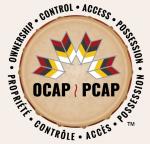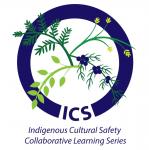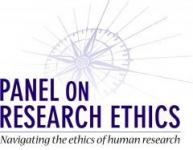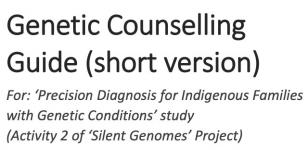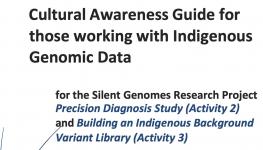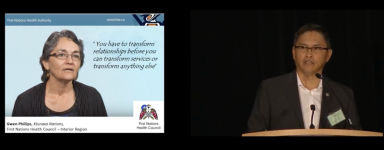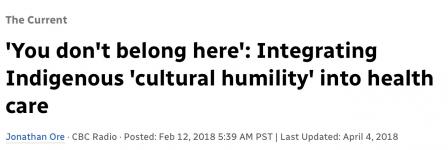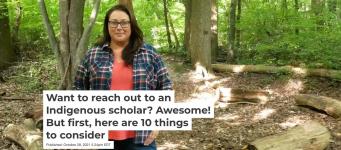Ownership, Control, Access, Possession (OCAP®)
Training by First Nations Information Governance Centre (FNIGC) Training Course: Fundamentals of OCAP®’
The fundamentals of OCAP Training course is an online course developed with First Nations leaders and subject experts. Aimed at introducing the OCAP principles of Ownership, Control, Access, and Possession in an engaging and accessible way, the course is designed to provide the necessary information and tools for First Nations and those who work with First Nations to apply OCAP principles through their work. This course has an associated cost.
Video: Understanding the First Nations Principles of OCAP™: Our Road Map to Information Governance
Understanding the First Nations Principles of OCAP: Our Road Map to Information Governance is a free 6 minute video made by the First Nations Information Governance Center (FNIGC) that breaks down the importance of OCAP for First Nations people and communities. The video also includes interviews with FNIGC members from across Canada and provides an engaging and informative introduction to OCAP for those looking to increase their awareness.
Indigenous Cultural Safety Training
San’yas Indigenous Cultural Safety Training Program
(Provincial Health Services Authority of British Columbia, PHSA)
San’yas offers online training courses for people across Canada to address Indigenous-specific racism that negatively affects Indigenous peoples fair access to services. Anyone can enroll in the cultural safety core and advanced training courses.
Indigenous Cultural Safety Collaborative Learning Series
(PHSA Indigenous Health Program & Southwest Ontario Aboriginal Health Access Centre)
The Indigenous Cultural Safety Collaborative Learning Series is a series of webinars put together with the goal of strengthening Indigenous cultural safety across all sectors through the sharing of knowledge and insight. Group and organizational participation is encouraged in addition to individual participation, to support developing culturally safe organizations.
Webinar: Research Involving First Nations, Inuit and Métis Peoples of Canada
(Canadian Institutes of Health Research/CIHR, 2012)
The 90-minute Research Involving First Nations, Inuit and Metis Peoples of Canada webinar run by Dr. John M.H. Kelly and Laura-Lee Blackwill dives into important issues from Tri-Council Policy Statement 2 Chapter 9 including research ethics and authority structures.
Indigenous Cultural Safety Resources for Health Care Providers and Researchers
Genetic Counselling Guide v.3, 2021. McIntosh, S and Jacob, K. An Indigenous cultural safety framework for genetic counselors engaging with Indigenous research participants. 2021.
Silent Genomes team
Cultural Awareness Guide for those working with Indigenous Genomic Data for the Silent Genomes Research Project Precision Diagnosis Study (Activity 2) and Building an Indigenous Background Variant Library (Activity 3). 2024.
Silent Genomes team
Video: Bringing Cultural Safety and Humility to Medical Practice, Mr. Joe Gallagher, 14 September 2018.
First Nations Health Authority
This talk by former chief executive officer of the First Nations Health Authority Mr. Joe Gallagher reflects on the mistreatment of Indigenous people and the need for cultural safety in medical practice. Mr. Gallagher also presents the First Nations Health Authority’s decision-making framework for Indigenous health and wellness, and the importance of building strong partnerships between Indigenous and non-Indigenous health and wellness groups.
Video: 'You don't belong here': Integrating Indigenous 'cultural humility' into health care, Dr. Shannon McDonald on CBC Radio-The Current, 04 April 2018
First Nations Health Authority
In this video, First Nations Health Authority’s Dr. Shannon McDonald reflects on the systemic racism she has witnessed against Indigenous peoples in the Canadian health-care system and what the health-care system could learn from Indigenous approaches to healing.
Summer Internship for Indigenous Peoples in Genomics (SING)
SING is a week-long workshop aimed at training Indigenous students in genomics, bioinformatics and Indigenous bioethics. The program covers all expenses and consists of hands-on training in genomic sciences and Indigenous knowledge. SING workshops are offered in several regions including Canada, US, Aotearoa, Australia and Hawaii.
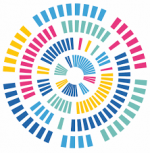 SING Canada Apply for a scholarship
SING Canada Apply for a scholarship
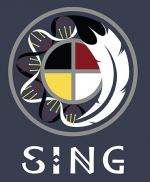 SING US
SING US
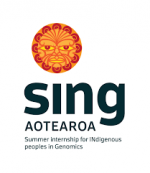 SING Aotearoa
SING Aotearoa
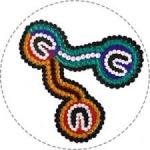 SING Australia
SING Australia
SING Hawaii (TBD)
Additional important resources:
Article: Want to reach out to an Indigenous scholar? Awesome! But first, here are 10 things to consider. The Conversation. Published: October 28, 2021 5.24pm EDT
This article by Indigenous scholar Jesse Popp highlights key considerations for those who want to reach out to Indigenous scholars. Jesse talks about her own experiences as an Indigenous scholar and provides important tips including “avoid box-ticking”, “prioritize reciprocity”, and “consider compensation”.
